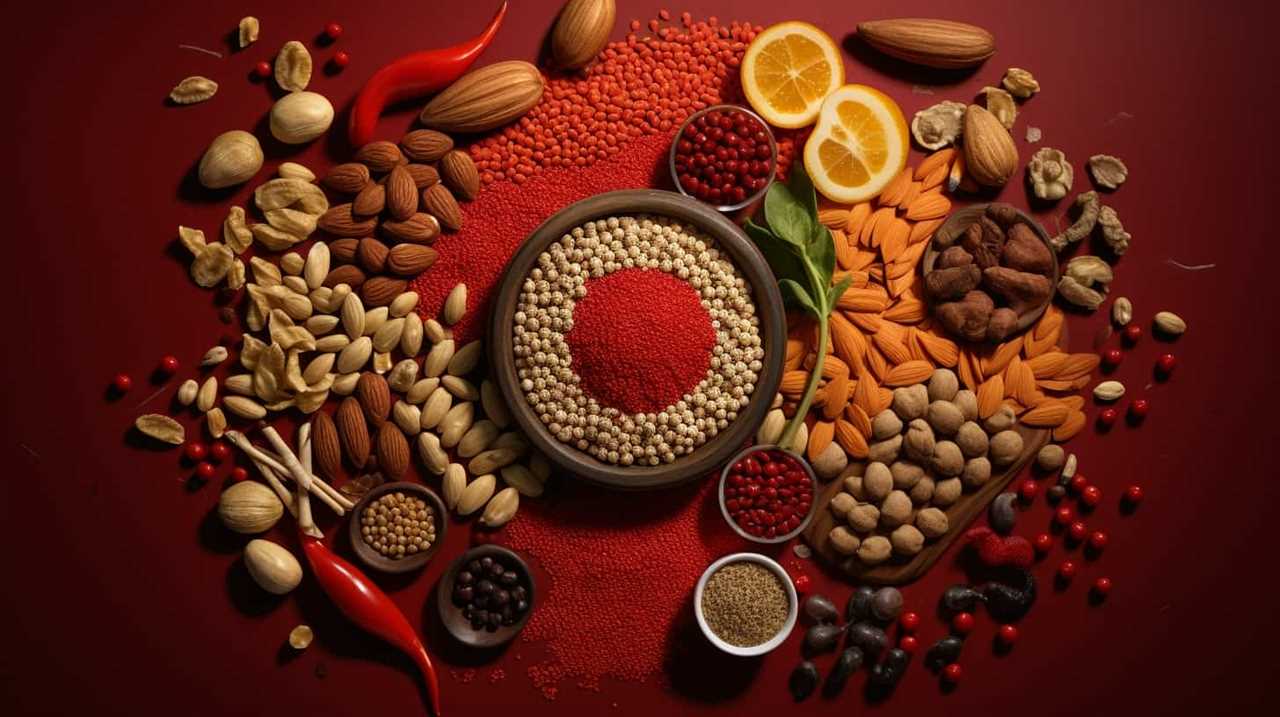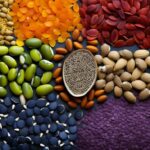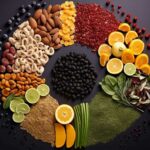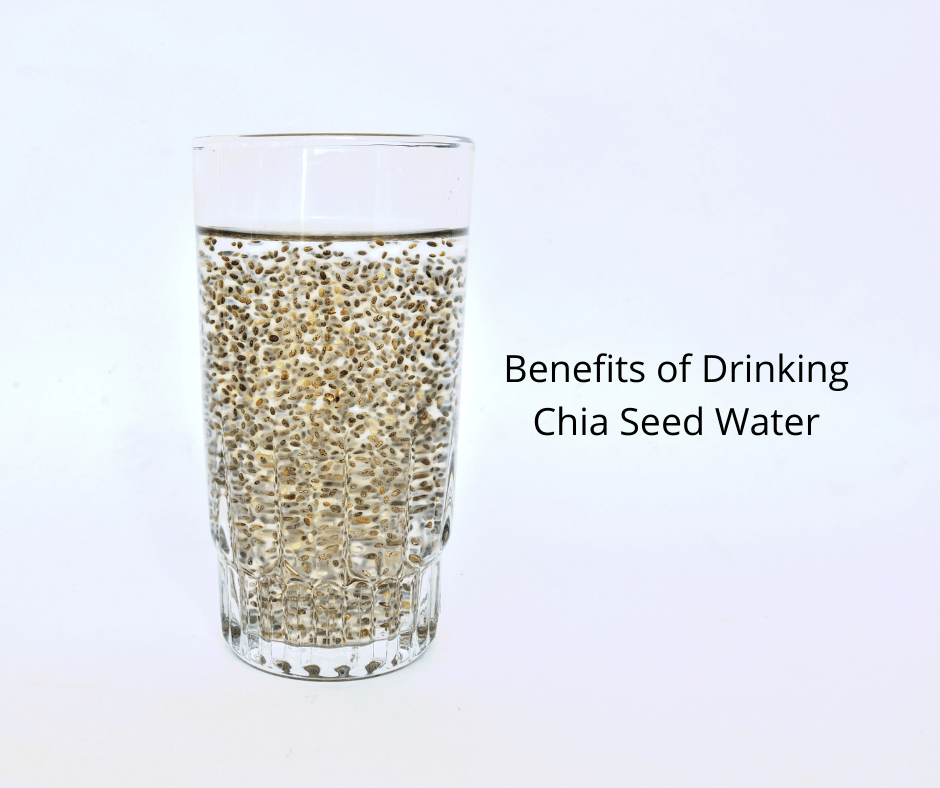It is well-known that small packages can sometimes contain great power, and chia seeds are a perfect example of this concept. Did you know that just 100 grams of these tiny yet powerful seeds are loaded with an impressive amount of nutrients?
Packed with essential nutrients, high in protein, and loaded with omega-3 fatty acids, chia seeds are a true superfood. Not to mention their fiber-rich properties and abundance of antioxidants and minerals.
Join us as we explore why these tiny seeds are so incredibly good for you.
Key Takeaways
- Chia seeds are packed with essential nutrients like omega-3 fatty acids, protein, fiber, and antioxidants.
- Chia seeds offer an impressive amount of plant-based protein and contain all nine essential amino acids, making them a complete protein source.
- Chia seeds are abundant in omega-3 fatty acids, which promote brain health, reduce inflammation, and have a significant impact on overall health.
- Chia seeds are high in fiber, which aids in digestion, weight management, blood sugar regulation, and provides numerous health benefits.
Essential Nutrients Found in Chia Seeds
Chia seeds contain a wide range of essential nutrients that our bodies need to thrive. These tiny seeds are packed with nutritional benefits that can promote overall health and well-being.

Firstly, chia seeds are an excellent source of omega-3 fatty acids, which are essential for brain health and reducing inflammation in the body. Additionally, they’re rich in fiber, which aids in digestion, promotes healthy weight management, and helps regulate blood sugar levels.
Chia seeds also provide a good amount of protein, making them a valuable addition to vegetarian or vegan diets. Furthermore, they’re packed with vitamins and minerals such as calcium, magnesium, and phosphorus, which support healthy bones and teeth.
Consuming chia seeds regularly can contribute to numerous health benefits and support a balanced and nutritious diet.
High Protein Content of Chia Seeds
As we delve into the high protein content of these tiny seeds, it’s important to note that they offer an impressive amount of this essential nutrient. Chia seeds are an excellent plant-based protein source, making them a great addition to a vegetarian or vegan diet.
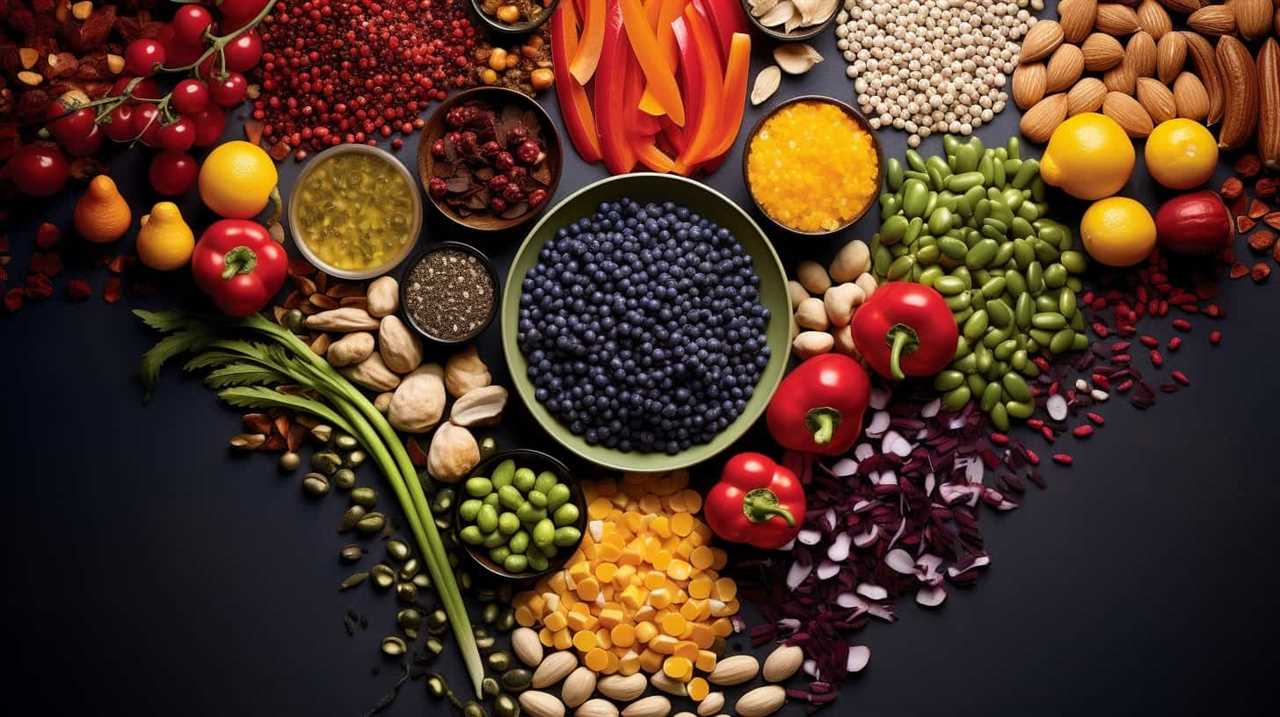
Protein is essential for building and repairing tissues, as well as for maintaining a healthy immune system. Chia seeds contain all nine essential amino acids, making them a complete protein source. This is particularly beneficial for those looking to lose weight, as protein helps to increase satiety and reduce cravings.
Additionally, chia seeds are low in calories and high in fiber, further supporting weight loss efforts. So, by incorporating chia seeds into your diet, you can enjoy the benefits of weight loss support and a nutritious plant-based protein source.
Omega-3 Fatty Acids in Chia Seeds
Moving on to the next aspect of chia seeds’ nutritional value, let’s explore the abundance of omega-3 fatty acids they contain. Omega-3 fatty acids are essential fats that play a crucial role in maintaining our overall health. Here are three benefits of omega-3 fatty acids in chia seeds:
-
Heart Health: Omega-3 fatty acids have been shown to reduce the risk of heart disease by decreasing inflammation, lowering blood pressure, and improving cholesterol levels.
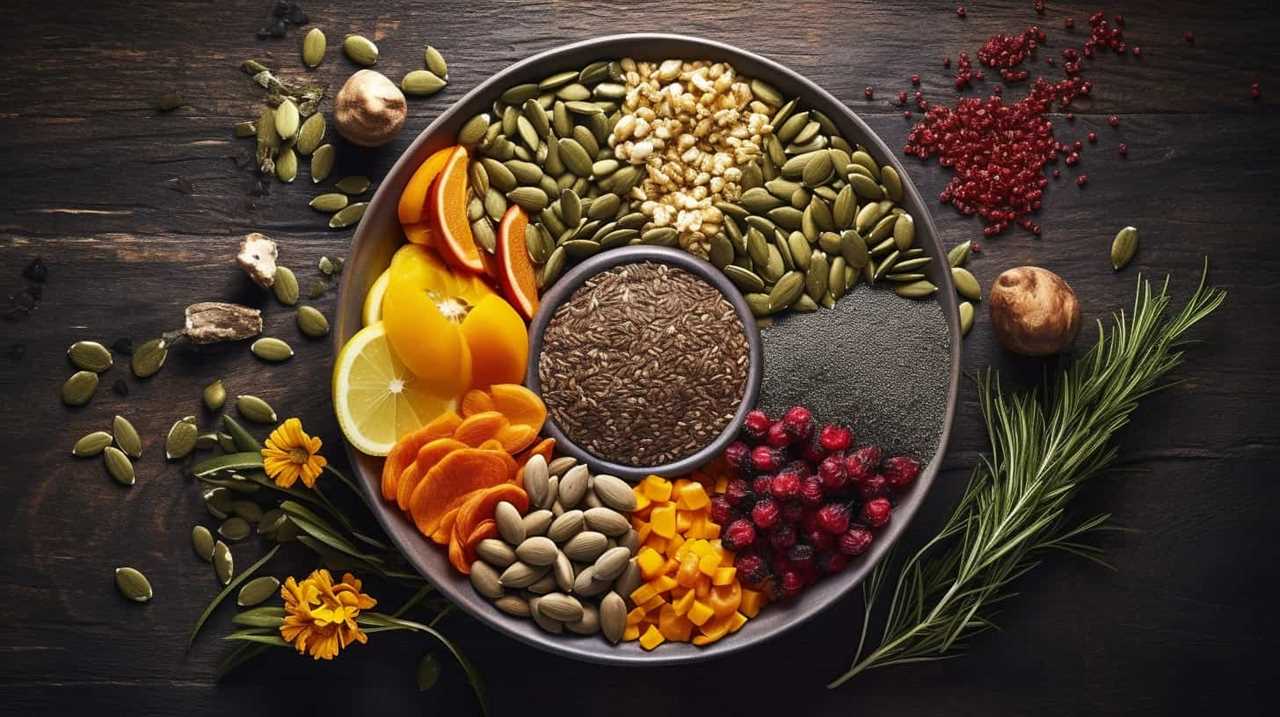
-
Brain Function: These healthy fats are vital for brain development and function. They’ve been linked to improved cognitive function, memory, and mood.
-
Joint Health: Omega-3 fatty acids possess anti-inflammatory properties that can help reduce joint pain and stiffness, making them beneficial for individuals with arthritis.
The impact of omega-3 fatty acids on our overall health can’t be overstated.
Now, let’s delve into the fiber-rich properties of chia seeds.
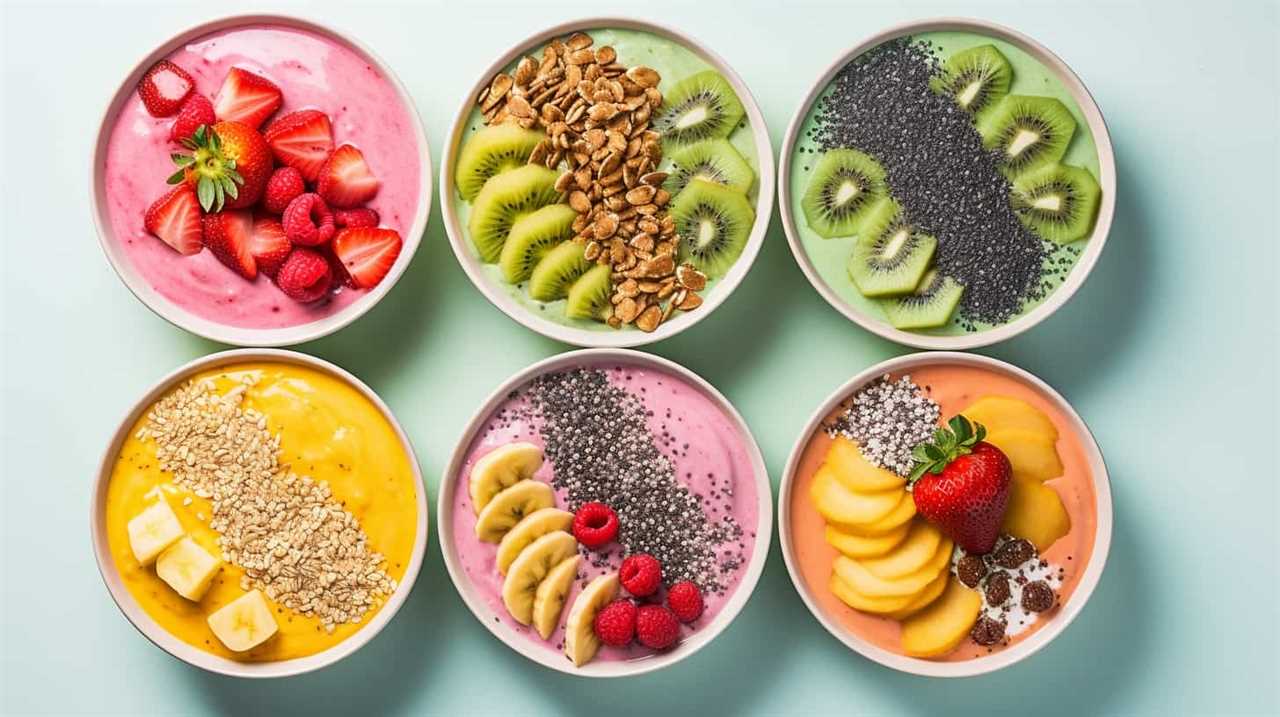
Fiber-Rich Properties of Chia Seeds
Continuing from the previous subtopic on omega-3 fatty acids, we can now explore the fiber-rich properties that chia seeds possess. Chia seeds are packed with dietary fiber, making them an excellent addition to a healthy diet. Just one ounce of chia seeds contains a whopping 10 grams of fiber, which is about one-third of the recommended daily intake for adults.
The high fiber content in chia seeds offers numerous health benefits, including aiding digestion. Fiber helps to regulate bowel movements and prevent constipation, promoting a healthy digestive system. Additionally, fiber-rich foods like chia seeds can help to control blood sugar levels, lower cholesterol, and support weight loss.
Now, let’s delve into the next section about the antioxidants and minerals found in chia seeds.
Antioxidants and Minerals in Chia Seeds
Chia seeds contain a wide array of antioxidants and minerals that contribute to their exceptional nutritional value. These antioxidants help to reduce inflammation in the body, which is important for maintaining overall health and preventing chronic diseases.
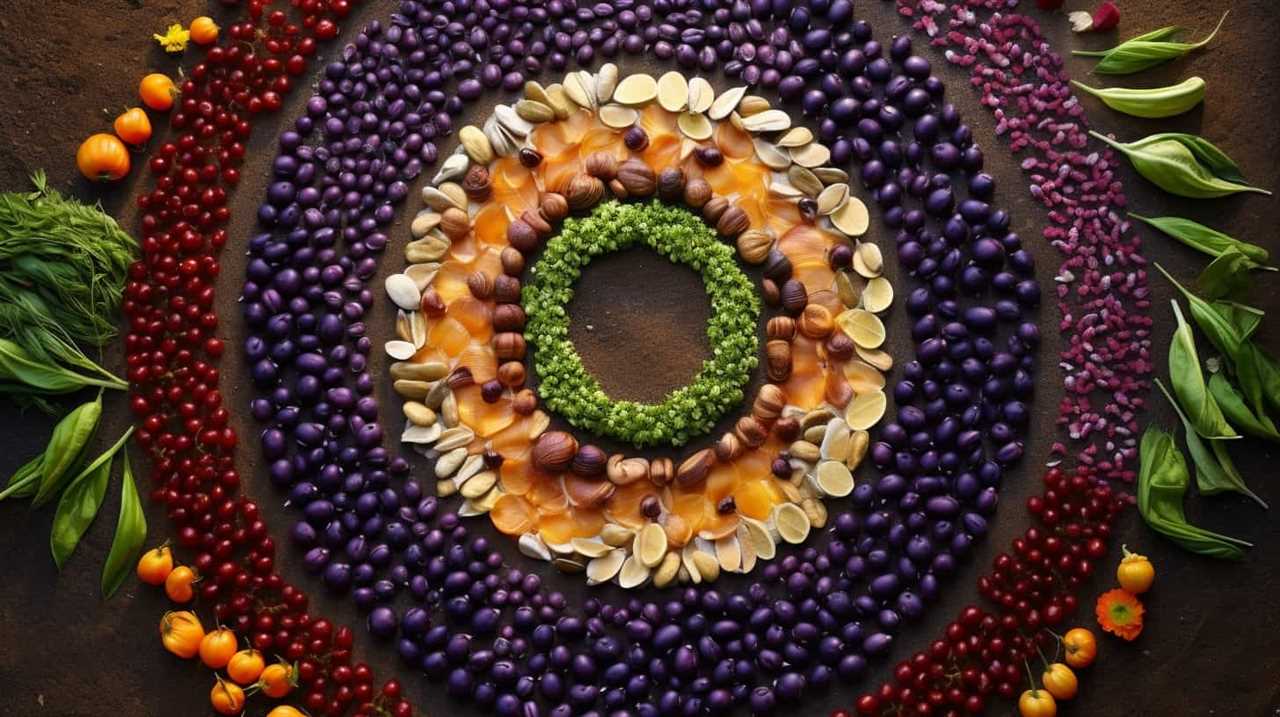
Additionally, the minerals found in chia seeds play a crucial role in promoting bone health. Here are three key antioxidants and minerals found in chia seeds:
-
Omega-3 fatty acids: Chia seeds are one of the richest plant-based sources of omega-3 fatty acids, which have been shown to reduce inflammation and lower the risk of heart disease.
-
Calcium: Chia seeds are packed with calcium, a mineral that’s essential for strong bones and teeth. Consuming calcium-rich foods like chia seeds can help prevent osteoporosis and maintain bone health.
-
Magnesium: Chia seeds are also a great source of magnesium, a mineral that plays a role in over 300 biochemical reactions in the body, including bone formation and muscle function.
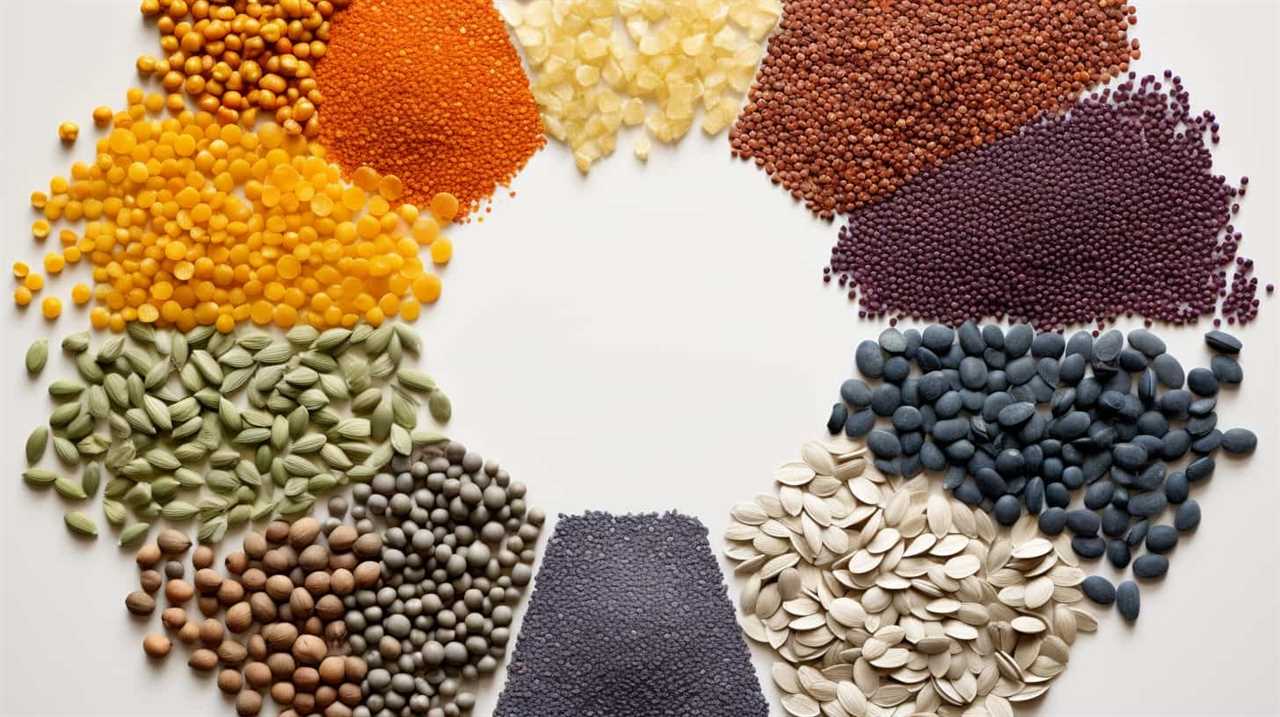
Frequently Asked Questions
How Many Calories Are in 100g of Chia Seeds?
In 100g of chia seeds, there are approximately 486 calories. Chia seeds are known for their high nutritional content and health benefits, making them a nutritious addition to any diet.
Can Chia Seeds Help With Weight Loss?
Chia seeds can help with weight loss by promoting a feeling of fullness and aiding digestion. They also help control blood sugar levels, making them a nutritious addition to any diet.
Are Chia Seeds Safe for People With Nut Allergies?
Chia seeds are generally safe for people with nut allergies, but precautions should be taken due to potential cross-reactivity concerns. It’s important to consult with a healthcare professional before incorporating chia seeds into your diet if you have a nut allergy.
How Can Chia Seeds Be Incorporated Into Daily Meals?
Chia seeds can easily be incorporated into daily meals. We love using them in chia seed recipes like smoothies, overnight oats, and puddings. They can also be enjoyed as a healthy snack on their own!

Are There Any Potential Side Effects of Consuming Chia Seeds?
There are potential allergies and a risk of chia seed overdose when consuming them. It’s important to be aware of these side effects and consume them in moderation to reap their nutritional benefits.
Conclusion
In conclusion, chia seeds may be small in size, but they pack a powerful punch when it comes to nutrition. With their high protein content, omega-3 fatty acids, fiber-rich properties, and abundance of antioxidants and minerals, these tiny seeds offer a multitude of health benefits.
As the saying goes, ‘good things come in small packages,’ and chia seeds are a perfect example of this. Incorporating them into your diet can be a simple and effective way to boost your overall nutrition.
